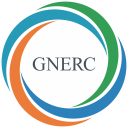Executive Summary
E-Control, together with junior partner BNetzA from Germany with support from French CRE and and Lithuanian VERT, was awarded the implementation of this project in 2020. The implementation started on 1 February 2021.
The purpose of this Twinning Project is to develop the institutional framework for the implementation of regulation of Georgia’s energy market in line with the European Union acquis and to strengthen the capabilities of the Georgian National Energy and Water Supply Regulatory Commission (GNERC) as the independent national regulatory authority through the development of tools and mechanisms based on the best European Union practices with regard to developing network tariff setting methodologies, designing an energy efficiency and renewable energy strategy and creating a regulatory framework for enabling demand side involvement.
Twitter: https://twitter.com/EUGeorgiaEnergy
Partners

E-Control
Team
Dietmar Preinstorfer
Yvonne Grösch
Giorgi Pangani
Stefan Katzmann
Nino Bukhnikashvili
Otar Zhgenty
Mariam Chumbadze
Public Relations
Opening Ceremony
On Wednesday, 08 September 2021, the public and representatives of the Georgian energy sector community were invited to attend the opening ceremony of the EU-funded Twinning Project “Development of Network Tariff Setting Methodologies, Energy Efficiency and Renewable Energy Regulatory Strategy and Creating Regulatory Framework for Enabling Demand Side Involvement”.
Representatives of the Delegation of the European Union to Georgia, Austrian and German embassies, Austrian and German NRAs E-Control and BNEtzA, Georgian National Energy and Water Supply Regulatory Commission (GNERC), Ministry of Economy and Sustainable Development of Georgia (MoESD) and Georgian Ministry of Foreign Affairs (MFA) underlined the important role of this project in accomplishing the goals laid out in the energy sector reform agenda of Georgia and shared comprehensive information on the project objectives.
The project grant is 1,5 Mio EUR and during the 27-month implementation period, the Austrian-German project consortium will assist the Georgian National Energy and Water Supply Regulatory Commission (GNERC) in Green Energy Regulation. The Twinning project is implemented by the Austrian Energy Regulator Energie-Control and BNetzA, the German Federal Network Agency for Electricity, Gas, Telecommunications, Post and Railway.
1st Meeting of the Georgian Energy Club
The EU-funded project on Green Energy Regulation in Georgia together with Georgian National Energy and Water Supply Regulatory Commission (GNERC) launched the Georgian Energy Club, which is an informal platform in order to provide an opportunity for high-ranking representatives of the European and Georgian energy sectors to discuss ongoing matters and challenges in the energy sector. The first meeting of the Georgian Energy Club took place in the Museum of Fine Arts. This meeting was opened by Commissioner Mr. Giorgi Pangani and the director of DFC Economics, Mr. Alberto Pototschnig, was invited as a keynote speaker and emphasized the importance of this initiative. After an official part, a reception was organized which was accompanied by the live music performed by an young Georgian musician. The event also hosted an exhibition of the artworks created by the Georgian artists under energy thematic.
2nd Meeting of the Georgian Energy Club
The EU Twinning project on Green Energy Regulation in Georgia hosted the 2nd meeting of the Georgian Energy Club together with GNERC aiming to create an informal platform for high-ranking representatives of the European and Georgian energy sector in order to discuss current topics and challenges in the energy sector. The focus of this meeting was the Black Sea submarine cable and Georgia´s European future in the energy sector. It took place at the Sheraton Hotel.
Closing Ceremony
The EU-funded Twinning Project for Green Energy Regulation in Georgia hosted a Closing Ceremony to celebrate its official conclusion. The project has significant achievements in all its components.
The results of component 1 of the project on network tariffs showed a focus on three main topics. These included determining fair tariffs for producers to contribute to network costs, implementing capacity tariffs for DSOs and discussing the tariff treatment of balancing and ancillary services. MS and BC experts worked together to develop models and data collection files to optimize the tariff system for the benefit of the energy sector in Georgia. Case studies were also included to supplement the findings.
Component 2 of the project focused on the opening of wholesale and retail markets and integrating flexibility. Various topics were discussed, including prosumers, energy communities, consumer protection, demand response, and net metering. Market barriers were analyzed, and action plans were developed. MS experts shared their experiences, with a particular focus on energy communities in Austria, prosumers in Germany, and demand response in Lithuania. The Georgian side already had experience in developing a new electricity market design and net metering. The installation of smart meters is already part of the legal framework in Georgia, which is an important step towards creating flexibility in the power grid.
Component 3 of the project focused on renewable energies, guarantees of origin and energy efficiency. With the ongoing energy crisis, these topics became increasingly important and new legal frameworks are expected in 2023. The project was divided into three parts, with the first part providing an overview of European legislation and best practices, which were compared with the situation and the respective legal framework in the BC. The second part analyzed specific topics such as renewables gases, guarantees of origin, obligation schemes for energy efficiency and energy communities. The third part focused on strategies and action plans for a state-of-the-art regulator to deal with the requirements of the changing energy markets.
The closing ceremony of the project was held at Sheraton Grand Tbilisi Metechi Palace. This event brought together the representatives of the Austrian regulatory authority for electricity and natural gas markets (E-Control), the German federal network agency for electricity, gas, telecommunications, post and railway (BNetzA), the Georgian national energy and water supply regulatory commission (GNERC), Georgian state institutions, business community, civil society, as well as diplomatic corps, international and donor organizations and other stakeholders with an aim to emphasize the imperatives of the ongoing energy sector reform, respective developments and major achievements of the project.
The EU-funded Twinning Project for Green Energy Regulation in Georgia was successfully concluded and achieved significant results in supporting the Georgian National Energy and Water Supply Regulatory Commission in improving the functioning of the energy market in accordance with the EU experience and standards.




